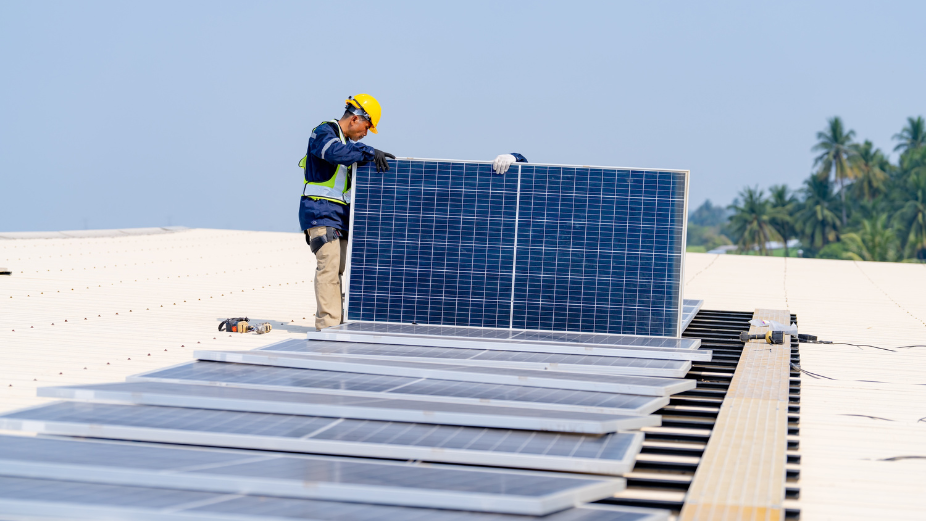
Residents of Malé City have seen a significant rise in their electricity bills, creating a financial burden for many households. This situation illustrates the urgent need for sustainable and long-term solutions to the country’s energy challenges. While the State Electric Company (STELCO) has initiated schemes like Avikatha to encourage the use of rooftops for solar installations, more comprehensive measures are necessary to transition to renewable energy and ensure economic and environmental sustainability.
The Current Landscape
The densely populated Malé relies heavily on state-subsidised utility service for its electricity. These subsidies, while providing temporary relief, are not a sustainable long-term solution. They drain state resources that could be better invested in alternative energy initiatives. Moreover, the reliance on fossil fuels for electricity generation exacerbates environmental degradation and leaves the country vulnerable to global fuel price fluctuations.
Avikatha: A Step in the Right Direction
STELCO’s Avikatha scheme is a commendable initiative that allows residents to rent their rooftops for solar panel installations. The power generated from these panels is fed directly into the STELCO grid, and participants receive a monthly rent based on the number and capacity of the panels installed. This scheme, available to residents in various atolls including Aa. Atoll, Adh. Atoll, V. Atoll, and Kaafu Atoll, opens opportunities for domestic, business, and government customers to contribute to sustainable energy production. However, it does not directly reduce electricity bills for consumers but helps increase the overall supply of renewable energy in the grid.
The Case for Enhanced Renewable Energy Incentives
While Avikatha is a positive start, additional incentives and measures are needed to accelerate the adoption of renewable energy. The government could offer subsidies or grants for the initial installation costs of solar panels, making the transition more affordable for consumers. Low-interest loans specifically designed for renewable energy installations could also be provided. Implementing tax credits or rebates for households and businesses that invest in renewable energy systems can make these options more financially attractive. Educating the public on the long-term benefits of solar energy through targeted campaigns can increase adoption rates. Highlighting the environmental benefits and potential savings on electricity bills can motivate more residents to participate.
Establishing feed-in tariffs can guarantee a fixed premium price for the electricity generated by residential solar systems and fed back into the grid. This policy has been successful in various countries, incentivising investment in renewable energy. Implementing net metering policies that allow consumers to offset their electricity bills with the power they generate can encourage the use of personal solar systems. Any excess power produced can be sold back to the grid. Investing in research and development for advanced renewable energy technologies can reduce costs and improve efficiency. Partnerships with international renewable energy experts can bring cutting-edge solutions to the Maldives.
Benefits of a Renewable Energy Transition
Subsidising solar energy can reduce overall electricity costs for consumers. Over time, as more households adopt solar energy, the demand for state-subsidised electricity will decrease, allowing the government to save money that can be redirected to other critical areas such as healthcare and education. Solar energy is a clean, renewable source of power that reduces greenhouse gas emissions. This aligns with global sustainability goals and the Maldives’ commitment to combating climate change, a critical issue for this low-lying island nation. Developing local solar energy infrastructure reduces dependence on imported fuels, enhancing energy security and stability.
Success Stories and Potential
The Maldives can draw valuable lessons from the global stage, where several countries have successfully transitioned to renewable energy. In Germany, the implementation of the Renewable Energy Sources Act (EEG) in 2000, which introduced feed-in tariffs, has been a cornerstone of the country’s renewable energy success. The policy guaranteed fixed payments for renewable energy producers, making it financially attractive to invest in solar and wind power. As a result, Germany saw a massive increase in renewable energy installations, leading to substantial reductions in electricity costs and significant contributions to the grid. The Maldives could adopt similar feed-in tariffs to encourage more households and businesses to generate their own renewable energy and sell excess power back to the grid, providing a steady income stream for individuals and boosting the overall energy supply.
Australia offers another compelling example, particularly through its use of solar rebates and incentives. The Australian government provides significant rebates for the installation of solar panels, reducing the upfront cost for consumers. Additionally, the introduction of net metering policies allows households to offset their electricity bills with the power they generate. The combination of financial incentives and regulatory support has led to widespread adoption of solar energy across the country. The Maldives could replicate this approach by offering substantial subsidies and implementing net metering policies to make solar energy more accessible and financially viable for its residents.
Enhancing Building Codes for Energy Efficiency
To address the rising electricity bills and support the transition to renewable energy, the Maldivian government can enhance building codes to ensure new constructions are energy efficient. Implementing both prescriptive and performance-based codes can set minimum energy performance standards for components like insulation, windows, and HVAC systems, reducing overall energy consumption. Additionally, adopting “stretch” codes, which are more stringent and can be incrementally enforced, would allow builders to gradually adapt to higher efficiency standards. Government incentives, such as subsidies, grants, and low-interest loans, can make these upgrades financially viable, while robust stakeholder engagement and training programs ensure compliance and address technical challenges
A Path Forward
The rise in electricity bills in Malé City is a wake-up call for the Maldives to rethink its energy strategy. By expanding incentives and support for renewable energy solutions, particularly solar power, the government can promote a more sustainable and economically viable energy future. The Maldives, which receives an average of nine hours of sunlight daily, is ideally positioned to leverage solar power extensively. This transition will not only help in reducing electricity costs and environmental impact but also position the Maldives as a leader in renewable energy adoption, ensuring a resilient and sustainable future for its citizens.












